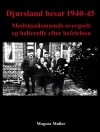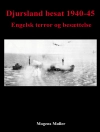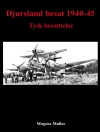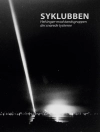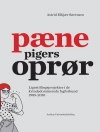Over the course of the long and violent twentieth century, only a minority of international crime perpetrators ever stood trial, and a central challenge of this era was the effort to ensure that not all these crimes remained unpunished. This required not only establishing a legal record but also courage, determination, and inventiveness in realizing justice. Defeating Impunity moves from the little-known trials of the 1920s to the Yugoslavia tribunal in the 2000s, from Belgium in 1914 to Ukraine in 1943, and to Stuttgart and Düsseldorf in 1975. It illustrates the extent to which the language of law drew an international horizon of justice.
Tabla de materias
List of Figures and Tables
Acknowledgements
List of Abbreviations
Chronology
Introduction: Defeating Impunity in Twentieth-Century Europe
Ornella Rovetta and Pieter Lagrou
Chapter 1. The Law of Military Occupation and the Belgian Trials after 1918
Thomas Graditzky
Chapter 2. The Claims of Belgian Deported Workers at the Paris Mixed Arbitral Tribunal in 1924
Arnaud Charon
Chapter 3. Coining Postwar Justice from the Margins: Exile Lawyers in London, 1941–1945
Kerstin von Lingen
Chapter 4. The Treasure Trove of the United Nations War Crimes Commission Archives, 1943—1949
Wolfgang Form
Chapter 5. Legal Imagination and Legal Realism: ‘Crimes against Humanity’ and the US Racial Question in 1945
Guillaume Mouralis
Chapter 6. Filling the Legal Void: Jewish Victims, German Offenders and Belgian Judges, 1942–1951
Marie-Anne Weisers
Chapter 7. Soviet Footage of War Crimes, 1941–1946: Between Propaganda and Judicial Evidence
Vanessa Voisin
Appendix 7.1: Circular Sent to the Chiefs of Cinema Front Groups by Fedor Vasilchenko, the Director of Newsreel Production, 8 September 1943 (Excepts)
Appendix 7.2: Circular Sent to the Chiefs of Cinema Front Groups by the Director of Newsreel Production Fedor Vasilchenko, 3 December 1943 (Excerpts)
Chapter 8. From Majdanek to Demjanjuk: Failures of Justice in Postwar Germany, 1958–2009
Rebecca Wittmann
Chapter 9. Force of Fact: Municipal Authorities, Victim Associations and Forensic Science at the International Criminal Tribunal for the former Yugoslavia
Isabelle Delpla
Chapter 10. International Law in Action: The Role of the Legal Advisor in Operations in the Twenty-First Century
Chris De Cock
Conclusion
Ornella Rovetta and Pieter Lagrou
Index
Sobre el autor
Pieter Lagrou has taught contemporary history at the Université libre de Bruxelles since 2003. He has published on the legacy of the Second World War in Europe, on war crime trials and contemporary European historiography. He is currently working on the histories of popular sovereignty since 1789.



